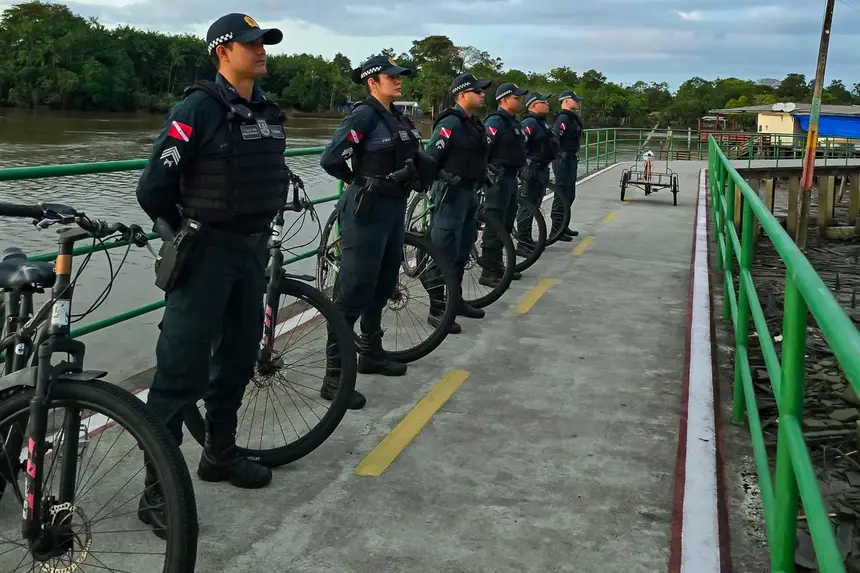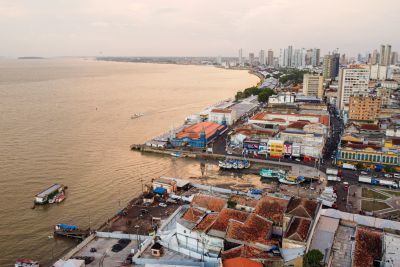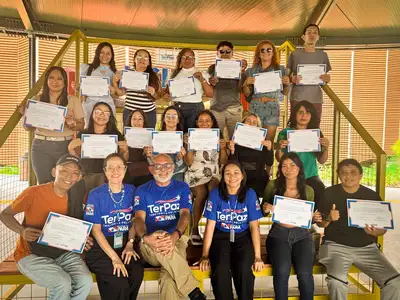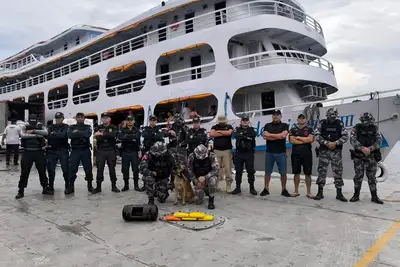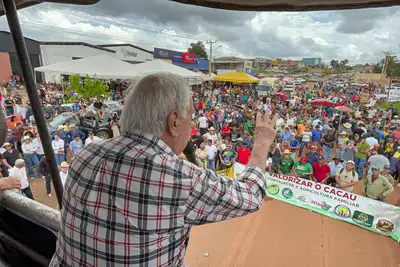Bicycle Policing Ensures Efficiency and Presence of the Military Police in Afuá on Marajó Island
In the city without cars, the Military Police transforms bicycles into a tool for sustainable patrolling and proximity to the population
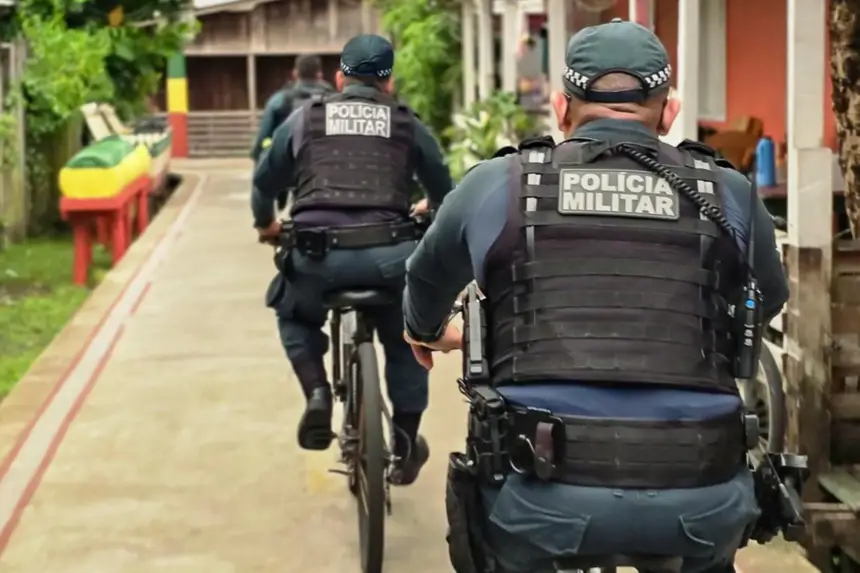
In Afuá, in the Marajó archipelago, the bicycle is the only means of transportation, as the municipality has extensive flooded areas and therefore lacks conventional streets, making car use unfeasible. The city only has elevated walkways built on stilts, which serve as bike lanes and sidewalks for bicycles and pedestrians. On this Tuesday, August 19, Cyclist Day, Afuá is a reference in the use of bicycles, also due to the local policing that develops a differentiated work using the vehicle to ensure public safety.
The force employed in bicycle policing consists of 25 police officers, who operate at the headquarters of the Company, in the municipality itself, conducting visible patrols, base points in strategic locations, preventive rounds, and integrated actions with other local agencies. In addition to using bicycles as the main means of land transportation, the municipality also has a support boat, used for travel in more distant or hard-to-access areas via the walkways, as life in Afuá is directly linked to the dynamics of the rivers that surround the region.
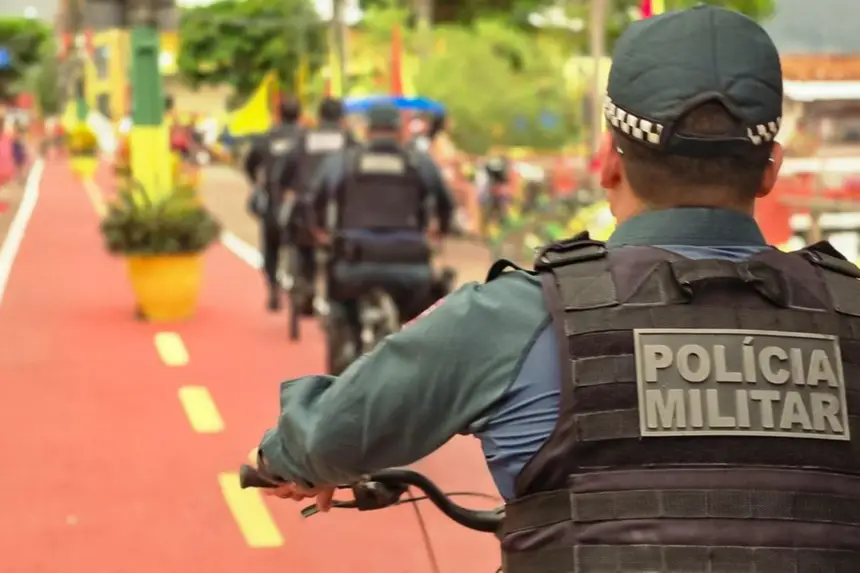
Joiciane Pinheiro, 35 years old, a native of Afuá, praised the police's work. “We know that the Military Police plays a crucial role in society. Here in Afuá, the police's work has been excellent, always providing more security to the citizens of Afuá. All respect and admiration to these professionals who perform their role with such efficiency.”
She also highlighted the charm of living in a city powered by bicycles. “As an Afuaense, I feel a huge pride in living in a unique city, built on stilts, where cycling is our greatest joy and brings benefits to residents and the environment.”
The use of bicycles by the Military Police follows Law No. 495/2022, which regulates bicycle policing, reinforcing the use of the vehicle as a tool for approaching the police and the community, promoting sustainable practices in public safety.
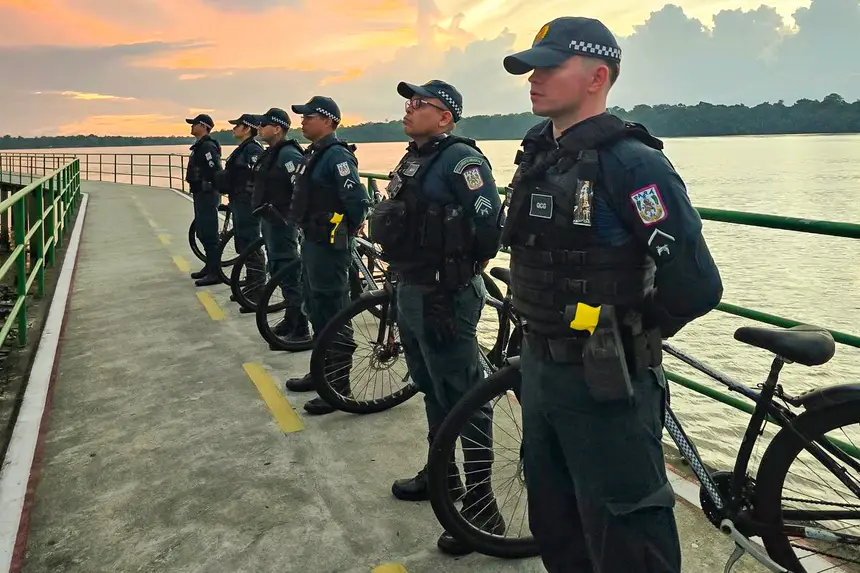
For the commander of the 32nd CIPM, Major Adriana Coutinho, the model is effective for the reality of Afuá. “This model of policing with bicycles ensures greater efficiency in patrolling, strengthens proximity to the community, and contributes to maintaining public order. With this, the Military Police can be present, ensuring safety throughout Pará.”
More about Afuá - It is a municipality in Pará, located in the Marajó archipelago, in the Furo de Breves region, with an estimated population of 40,246 inhabitants, according to the Brazilian Institute of Geography and Statistics (IBGE).
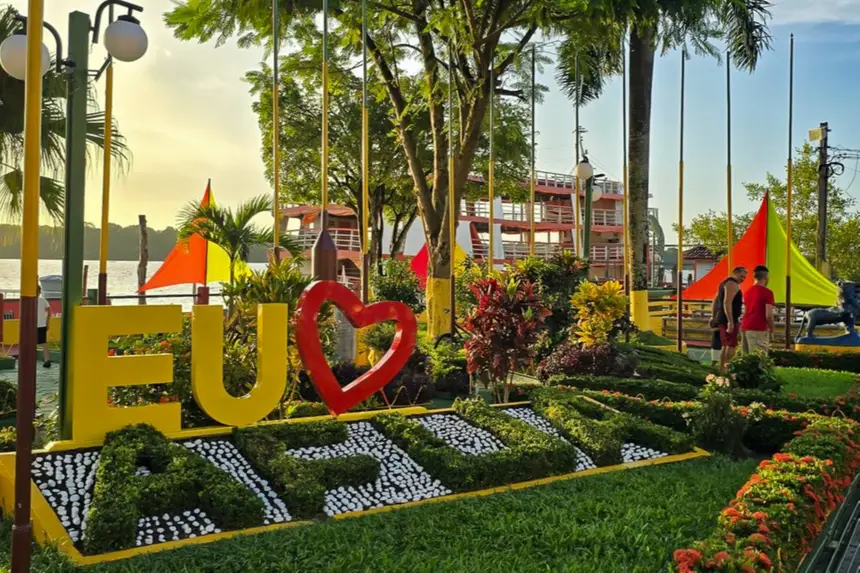
Afuá has extensive flooded areas, and this characteristic led to the construction of stilts and wooden walkways for the circulation of the population. The use of automobiles is unfeasible due to the terrain. Because of this uniqueness, the municipality became known as the “Marajoara Venice.” Afuá houses environmental protection areas, such as the Charapucu State Park and the Environmental Protection Area (APA) of the Marajó Archipelago.


